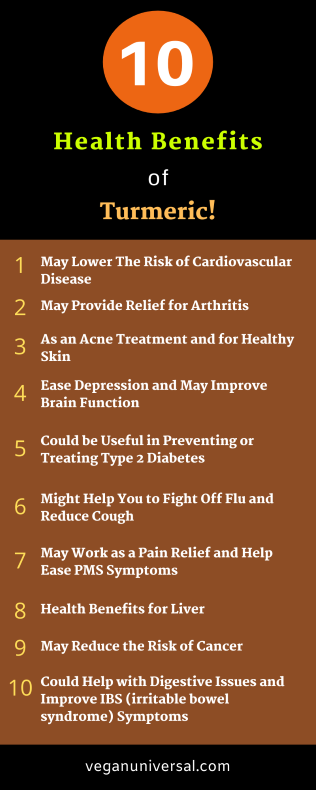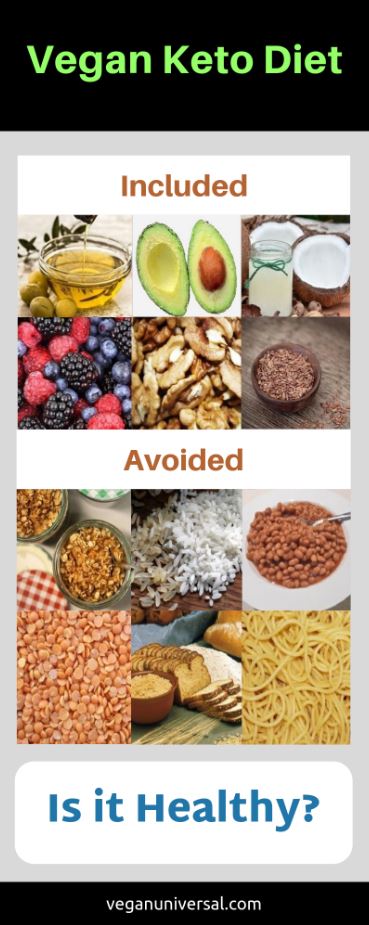
Pouring milk over your cereal or adding it to your coffee is such a familiar practice around the world that few people ever take a moment to really consider whether it’s actually a good idea or not.
The dairy industry has long promoted milk as an indispensable beverage for health. Catchphrases like ‘got milk?’, ‘make mine milk’ and ‘wake up to milk’ became common parlance. The milkman was even being depicted as a hero in some adverts!
For a very long time, there weren’t enough alternatives for milk to drink by itself or with your cereals, tea, or coffee, thus people simply grew up with milk as an everyday part of their diet.
However, in the wake of a growing body of research, is it actually healthy to drink milk? Let’s find out!
Can We Digest Milk?
The enzyme lactase, which enables young children to digest their mother’s milk, stops being produced between the ages of about 2 – 5, so a very high percent of adults simply can’t digest milk properly. This fact frequently manifests as lactose intolerance [1] causing bloating, stomach cramps and nausea, and even intestinal gas and diarrhea.
Any Side Effects of Dairy Products?
Milk and other dairy products are considered to be amongst the top sources of saturated fat in a Western diet, thus contributing not just to heart disease and Type 2 diabetes, but also to that scourge of an aging population, Alzheimer’s disease. Several studies have also isolated links between the consumption of dairy products and a higher risk of prostate, ovarian, and breast cancers. [2]
In fact, dairy products, particularly hard, high-fat cheeses, are considered one of the top sources of saturated fat leading to elevated levels of cholesterol with a concomitant link to heart disease. Lactose intolerance, referred to above which affects a high number of people [3], is another malady that has been strongly linked to the consumption of dairy products.
Is Using Milk Associated With Allergies?
Developing a milk allergy is tellingly one of the most common food allergies that manifest in children. Symptoms of a milk allergy can include urticaria (hives), vomiting, wheezing, diarrhea, and in severe cases, even anaphylaxis, which can be life-threatening [4].
Does Dairy Support Bone Health?

A medical study in Sweden conducted on two large cohorts of men and women indicated that there might be a correlation between a higher milk intake and higher mortality rate. It also suggested a correlation between a higher intake of milk and a higher incidence of fractures in women.
Indications are that this might be linked to the resultant higher level of D-galactose ingested with high milk intake, which in turn might be linked to oxidative stress, and inflammation.
These factors can lead to aging, fractures, cardiovascular disease and even cancers. This would suggest that the recommendation to drink a lot of milk to prevent fractures is in fact questionable.
Osteoporosis also tends to be more prevalent in the western world despite its higher consumption of dairy. Dr Amy Lanou, the nutrition director for the Physicians Committee for Responsible Medicine in Washington, DC, points out that the countries that exhibit the highest rates of osteoporosis are in fact the ones where people have the highest levels of milk consumption in their diets.
Is There a Link Between Drinking Milk and Acne?
Although we’re still not sure exactly why, there is a definite link between milk consumption and acne, particularly in teenagers. [4] Some researchers suggest that the cause lies in the artificial hormones that are given to cows. Others feel that the growth hormones that naturally occur in milk (after all, milk is intended for growing calves) may also contribute to the development of acne.
Drinking Milk and Weight Gain
While the dairy industry claims to the contrary, a study incorporating more than 12,000 children did show a definite link between a high level of milk consumption and weight gain [5], due to an increase in calorie intake. A single cup of milk will add 150 calories to the diet. In fact, a higher intake of milk is often included in the diet of people who want to gain weight!
Does Drinking Milk Add to The Saturated Fat Content of Your Diet?
Just one glass of milk can contain in excess of 20% of your recommended daily intake of saturated fat, with no less than 24 mg cholesterol which we know to be harmful to heart health. Hard cheeses have an even higher fat content than milk.
Is There a Link Between Drinking Milk and Developing Breast Cancer?
A recent study [6] does conclude that women that consume high amounts of milk may run a higher risk of developing breast cancer than those that have very little dairy in their diets. The study also concluded that women who replace dairy with soy show a concomitant lower risk of breast cancer not because soy has a protective role in this regard, but because their dairy intake is simply so much lower.
Can Drinking Milk Heal Ulcers?
This is a medical ‘urban legend’ that has deservedly fallen by the wayside! This traditional remedy for healing ulcers may give you some short-term relief, but milk in fact will stimulate your stomach to produce more hydrochloric acid, which will make your ulcers hurt more in the long run.
How About Consuming Milk Products Such as Whey and Cheese?
Consuming high doses of whey products, (as bodybuilders and athletes are prone to do), can have multiple negative side effects. [7] These include fatigue, stomach cramps, nausea, reduced appetite, kidney and liver function impairment, headaches, and digestive issues. These will be exacerbated if the person has a milk allergy of any kind.
In a world where high blood pressure is an ever-increasing problem, controlling our sodium intake is very important. Cheese is one of the biggest conduits for sodium entering our diets, as cheese can have as much as 400 mg of sodium per ounce. Some of the biggest culprits here are the processed cheeses, as well as the various feta varieties, blue cheeses, Edam and halloumi.
So What Alternatives Do You Have for Milk and Other Dairy Products?
If you suffer from any of the conditions we’ve talked about above, here are some of our recommended alternative vegan food and milk substitutes. You will be surprised how easily you can replace milk. Just make sure to check the labels to know the nutrients you need and any other ingredients you may like to avoid. We also recommend that you use a product with added B12 which is an essential vitamin.
As you can see, there is an array of foods to get plenty of protein and calcium in your diet if you were to stop using dairy. Just look at this list of protein and calcium-rich foods:
- Beans, chickpeas, lentils, soy, calcium-set tofu
- Nuts, particularly almonds and brazil nuts
- Seeds like tahini, chia, sesame and flax
- Grains like amaranth and teff
- Green and leafy vegetables like bok choy, turnip greens, okra, kale, cabbage, broccoli and brussels sprouts
- Fortified bread – in the UK, calcium is added to white and brown flour by law
- Fruits like dried figs and oranges
- Blackstrap molasses (have it in small quantities because it’s high in sugar)
- Seaweed
Here are some of the vegan milk substitutes for cow’s milk:
- Soy Milk
A popular and one of the oldest vegan milk substitutes, soy milk is quite close to cow’s milk in terms of taste and nutrition. Made from whole soybeans or soy protein isolate, soy milk has a mild, creamy taste. It also tends to be an affordable and accessible non-dairy milk product in many countries.
- Almond Milk
Another popular milk alternative made with whole almonds, it has a slightly sweet nutty taste, a light texture (consistency will depend on the brand you pick), and is low in calories and fat. You may use it with smoothies, tea, coffee, cereals, or baked goods.
- Oat Milk
Oat milk naturally has a sweet and mild flavor, with the same calorific content as cow’s milk. You can cook with it just as you do with cow’s milk, and it is delicious in smoothies or with cereal. It is also high in beta glucan, (a soluble fiber) that binds with LDL cholesterol and is associated with numerous health benefits – including reducing the risk of heart disease and lowering blood sugar levels.
- Macadamia Milk
Macadamia milk has less than 1/3rd of the calories of cow’s milk, and only half the fat content. With its creamy taste, it is delicious in smoothies and coffee.
- Hemp Milk
Hemp milk is slightly sweet and nutty, contains virtually no carbs, and is also low in calories. As it contains high-quality protein and essential fatty acids, it is an ideal choice for vegans!
- Cashew Milk
Cashew milk has a delicious creamy taste, and is low in calories and sugar.
- Rice Milk
Made from white or brown rice, it has a mild sweet taste. Low in fat, and sugar, and one the most hypoallergenic non-dairy milk substitutes.
- Quinoa Milk
With its characteristic nutty and slightly sweet flavor, moderate amount of calories and high-quality protein, quinoa milk is an excellent option for vegans!
- Coconut Milk
Coconut milk is flavorful and has a lovely smooth texture. It contains only 1/3rd of the calories of cow’s milk. It is high in triglycerides (MCTs), and low on carbs.
Conclusion
In view of the above, we believe that it’s a sensible question to ask why you would opt to expose yourself to various health issues associated with milk and dairy products when there are so many healthful and delicious plant-based alternatives available to you.
The dairy industry is also rife with exploitation, with sentient, and intelligent animals being treated like machines for generating profits by dairy farms. One of the cruelest aspects of the milk industry is the treatment of calves, removed from their mothers hours after birth. There is a harmful environmental impact associated with dairy farming as well, including greenhouse gas emissions, habitat destruction, and water and soil pollution.
Apart from the severe impact of the dairy industry with its massive carbon footprint, simple common sense would tell us that in nature, no species drinks milk after their normal weaning age. No other species drinks milk from other species, either. The obvious fact in nature is that cow’s milk is produced for calves to grow and put on mass and was not made for our nutritional needs.
Therefore any health issues / side effects you may endure by consuming milk don’t come as a surprise considering what’s evident when we closely observe nature.
Related posts:
- Plant-Based Vegan Milk Consumer Guide
- Dairy-Free Vegan Milk Brands Review
- Best Almond Milk Brands Review
References:
- https://www.niddk.nih.gov/health-information/digestive-diseases/lactose-intolerance/definition-facts
- https://pubmed.ncbi.nlm.nih.gov/22081693/
- https://www.pcrm.org/good-nutrition/nutrition-information/health-concerns-about-dairy
- https://pubmed.ncbi.nlm.nih.gov/15692464/
- https://pubmed.ncbi.nlm.nih.gov/15939853/
- https://pubmed.ncbi.nlm.nih.gov/12606246/
- https://www.health.harvard.edu/staying-healthy/the-hidden-dangers-of-protein-powders
Other references:
https://pubmed.ncbi.nlm.nih.gov/15775506/
Disclaimer:
While every attempt has been made to verify the information provided here, the content in this post is for informational purposes only and not to be considered as professional advice. By providing the information contained herein we’re not diagnosing, or treating any type of disease or medical condition. Before beginning any regimen it is advisable to seek the advice of a licensed healthcare professional.








